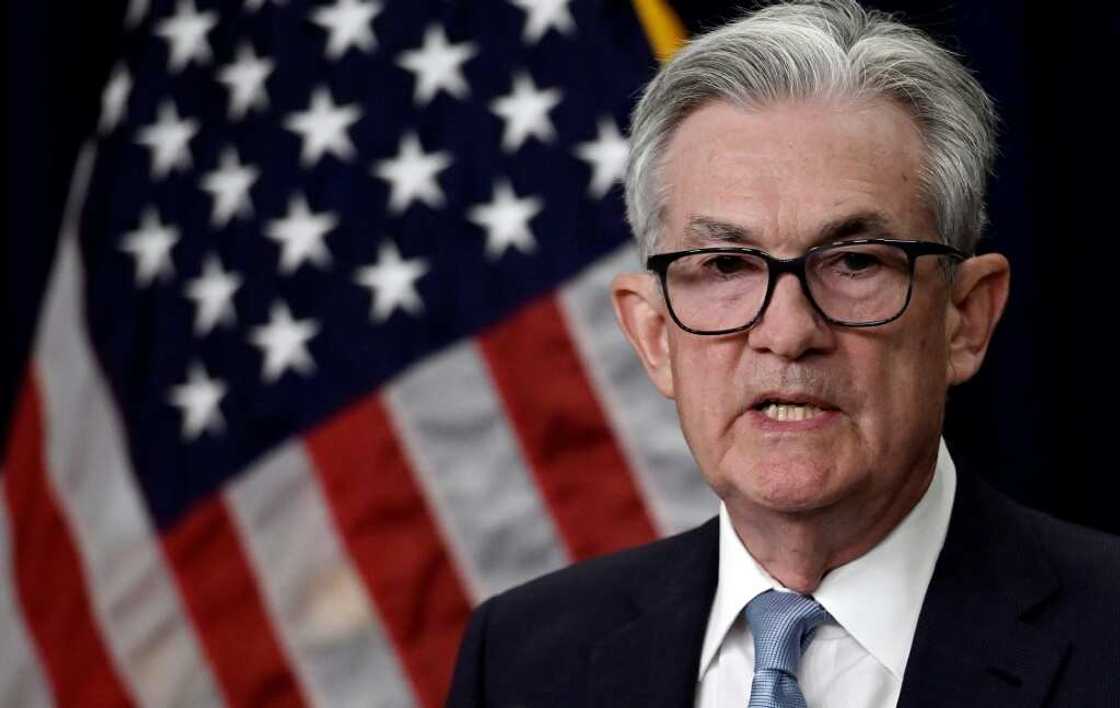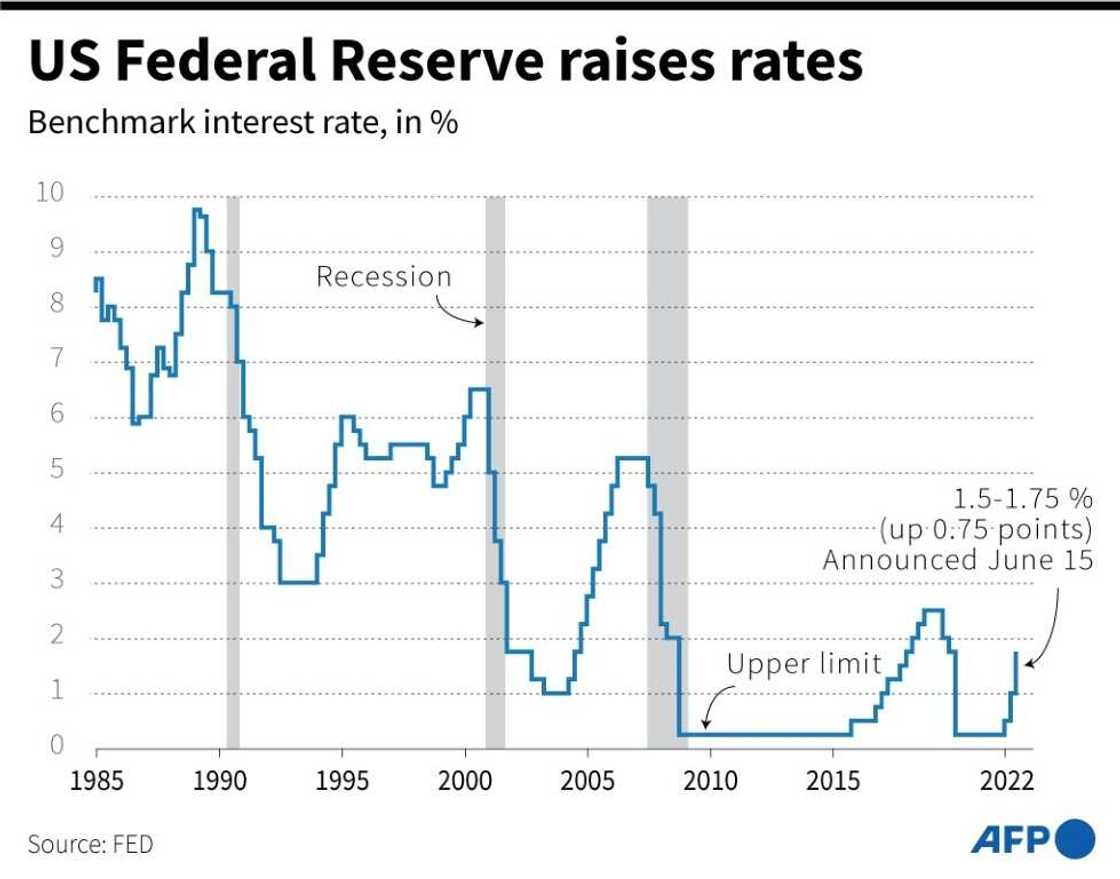US could face more inflation 'surprises': Fed's Powell

Source: AFP
PAY ATTENTION: Click “See First” under the “Following” tab to see Legit.ng News on your Facebook News Feed!
The US economy is strong but faces an "uncertain" global environment and could see further inflation "surprises," Federal Reserve Chair Jerome Powell said Wednesday.
In the first of two closely-watched days of testimony to Congress, Powell again stressed that the Fed understands the hardship caused by rising prices and is committed to bringing down inflation, which has reached a 40-year high.
The US central bank last week announced the most aggressive interest rate increase in nearly 30 years and promised more action to come to combat the price surge, with gas and food costs soaring and millions of Americans struggling to make ends meet.
But as fears mount that the rapid tightening of financial conditions could go too far and tip the world's largest economy into recession, Powell insisted the US economy "is very strong and well positioned to handle tighter monetary policy."
"Inflation has obviously surprised to the upside over the past year, and further surprises could be in store," the Fed chief told the Senate Banking Committee in his semi-annual appearance.
Policymakers "will need to be nimble" given that the economy "often evolves in unexpected ways," he said.
PAY ATTENTION: Join Legit.ng Telegram channel! Never miss important updates!
Last week's super-sized 0.75-percentage-point increase in the benchmark lending rate was the third since March, taking the policy rate up a total of 1.5 points. And Powell at the time said more such increases were likely in July.
The Fed is facing intense criticism that it was too slow to react to the changing economy, which benefited from a flood of federal government stimulus.
Powell made no explicit mention of recession risks in his opening remarks, but was sure to be grilled about the prospect by senators.
'Essential' to curb inflation

Source: AFP
In addition to easing the financial strain on American families, especially those with fewer resources, the Fed chief said tamping down inflation was "essential... if we are to have a sustained period of strong labor market conditions that benefit all."
The US economy recovered quickly from the Covid-19 pandemic, helped by robust consumer spending, and has continued to create jobs at a strong pace, averaging 408,000 in the past three months.
Unemployment is near a 50-year low.
But the buoyant demand for homes, cars and other goods clashed with transportation and supply chain snarls in parts of the world where Covid-19 remained -- and remains -- a challenge.
That fueled inflation, which got dramatically worse after Russia invaded Ukraine in late February and Western nations imposed stiff sanctions on Moscow, sending food and fuel prices up at a blistering rate.
Powell said the fallout from the conflict in Ukraine "is creating additional upward pressure on inflation."
In addition, "Covid-19-related lockdowns in China are likely to exacerbate ongoing supply chain disruptions."
But he noted that the issue is not unique to the United States.
"Over the past year, inflation also increased rapidly in many foreign economies," he said.
In fact, many major central banks have joined the Fed in beginning to tighten monetary policy -- with the notable exception of the Bank of Japan.
Powell pointed to signs that rising rates are having an impact, as business investment slows and "activity in the housing sector looks to be softening, in part reflecting higher mortgage rates."
Average home loan rates jumped to 5.23 percent in May for a 30-year, fixed-rate mortgage, from 4.98 percent in April, according to Freddie Mac, while the median price for homes topped $400,000 for the first time.
"The tightening in financial conditions that we have seen in recent months should continue to temper growth and help bring demand into better balance with supply," Powell said.
Source: AFP





